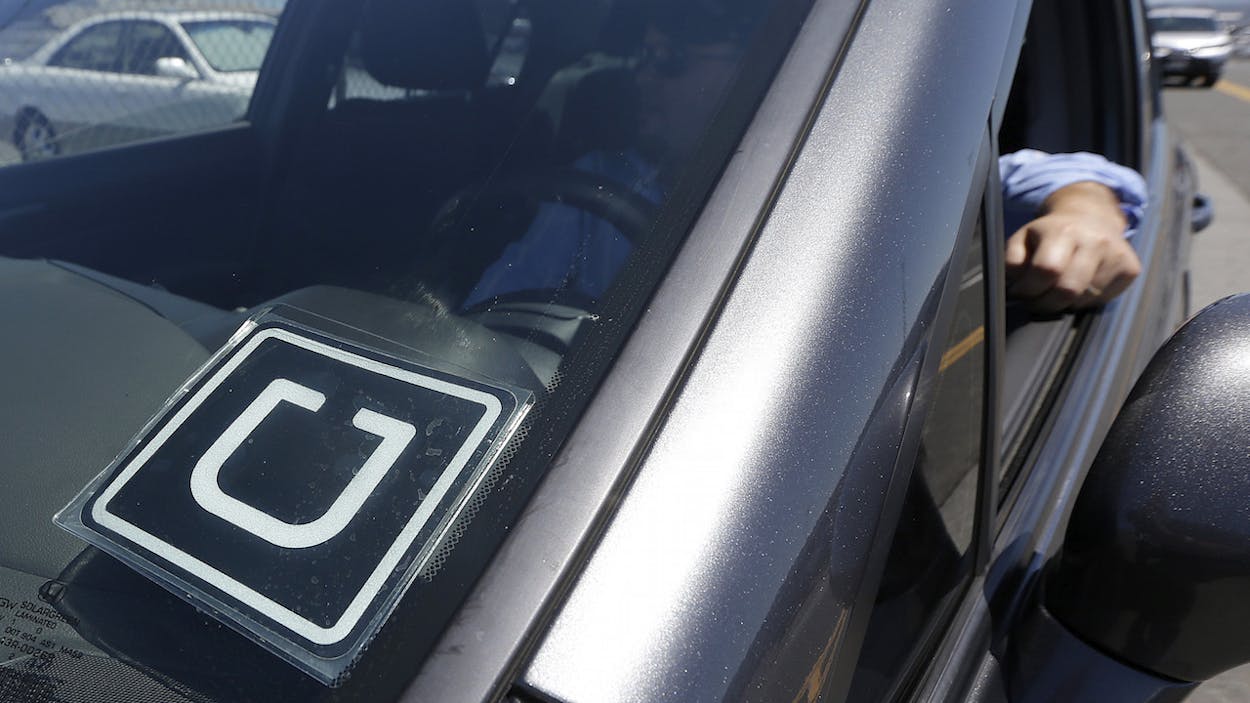As the week ends, I’d like to take a quick look at one of the most heated local debates in the state at the moment: the referendum on Austin’s Proposition 1, an ordinance concerning Uber and Lyft and the regulations under which they, and similar ridesharing companies, should operate.
To explain the debate—which has become, as the Austin American-Statesman notes, unhelpfully confusing—it helps to lay out the chronology. In December, Austin City Council adopted an ordinance that established regulations for the ride-sharing companies, which had already begun to operate in Austin. Under the ordinance, the regulations would become more stringent over time; should it remain in effect it would, for example, require that would-be drivers for Uber or Lyft be fingerprinted as part of their background checks.
This elicited a backlash from the companies and their supporters, and spurred a political action committee, funded by Uber and Lyft, to gather 20,000 signatures for a petition proposing an alternative ordinance. The result, as KUT’s Audrey McGlinchy explains, is the election Austin is now having. A vote in favor of Proposition 1 is a vote in favor of the regulations proposed by the ride-sharing companies. A vote against it is a vote in favor of the more stringent regulations, as passed by Austin City Council in December.
Uber and Lyft have threatened to leave Austin if Proposition 1 fails; their argument is that City Council’s regulations would make it unduly onerous to operate in Austin. (The companies have made similar threats in other cities, including Houston.) The Austin American-Statesman has come out against the ordinance, as has the Austin Chronicle. In both editorials, and particularly the latter, there’s an element of exasperation at the hubris both companies have shown in their dealings with city council. As the Chronicle puts it:
They began operating without adhering to existing Austin ordinances; they drafted and then accepted a temporary, pre-“pilot” ordinance they now insist was permanent; and they’re in the midst of the massive funding of a petition campaign and vote-buying, combined with threats of departure and extremely dishonest promotion and advertising to persuade Austin voters to confirm their domination. Despite all claims to the contrary, this campaign has little to do with “fingerprinting” (the public safety standard) and nothing at all to do with either libertarian principles or the “free market.” Uber and Lyft want a playing field heavily tilted to their advantage, so they can eliminate the local competition and monopolize the ride-hailing market—after which they will resume squeezing drivers and riders as they have persistently done elsewhere.
Yeah, well. Be that as it may, I voted in favor of Proposition 1 yesterday with no hesitation for the simple reason that if Austin City Council wanted to cast itself as a responsible steward of the ride-hailing market, it shouldn’t have completely failed to do so for decades. Prior to the appearance of Uber and Lyft, per a 2010 report from Texas RioGrande Legal Aid, the city issued 669 permits for the three companies seeking to operate taxi services in Austin—which is one of the 20 largest cities in the United States, by the way, and not blessed with an extensive system of public transportation. Fully two-thirds of those permits were doled out to one rent-seeking company, Yellow Cab, which has, needless to say, donated generously to candidates seeking municipal office. In addition to the fact that Austin’s taxi companies were barely functional—locals will recall that calling for a cab was basically the equivalent of stuffing a message in a bottle, and throwing it into the sea—the drivers who worked for them, per the Legal Aid report, were basically treated like serfs, with the average cab driver in Austin earning roughly $200 a week, before taxes.
There may, in other words, be cities where local governance is sufficiently robust that the voters may be reasonably expected to side with their city council over corporate interlopers. Austin, at least on this issue, is not one of those cities. The election on Prop. 1 is May 7th; early voting has already begun, and runs through May 3rd; the Travis County Clerk’s office has a list of polling places







